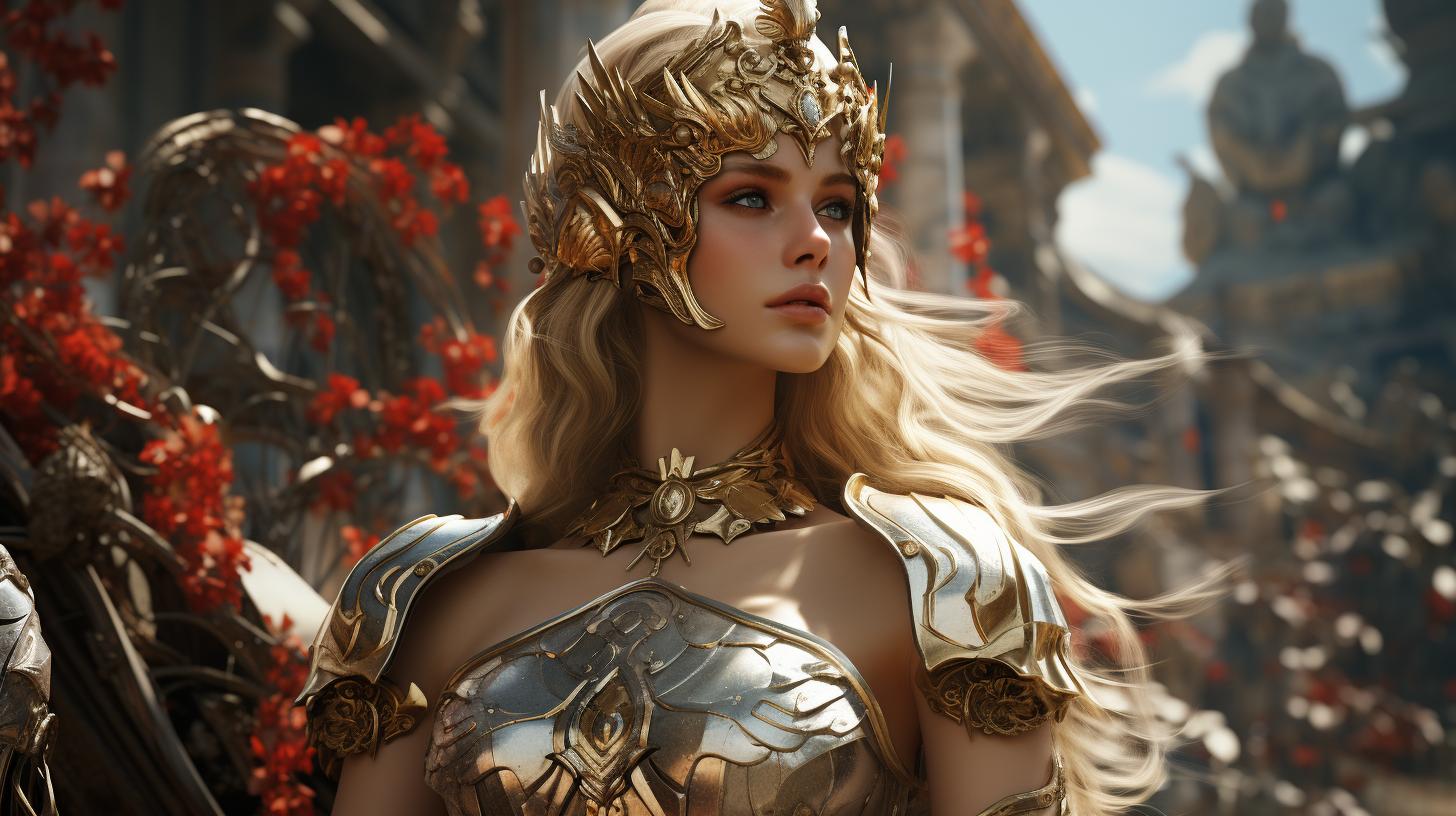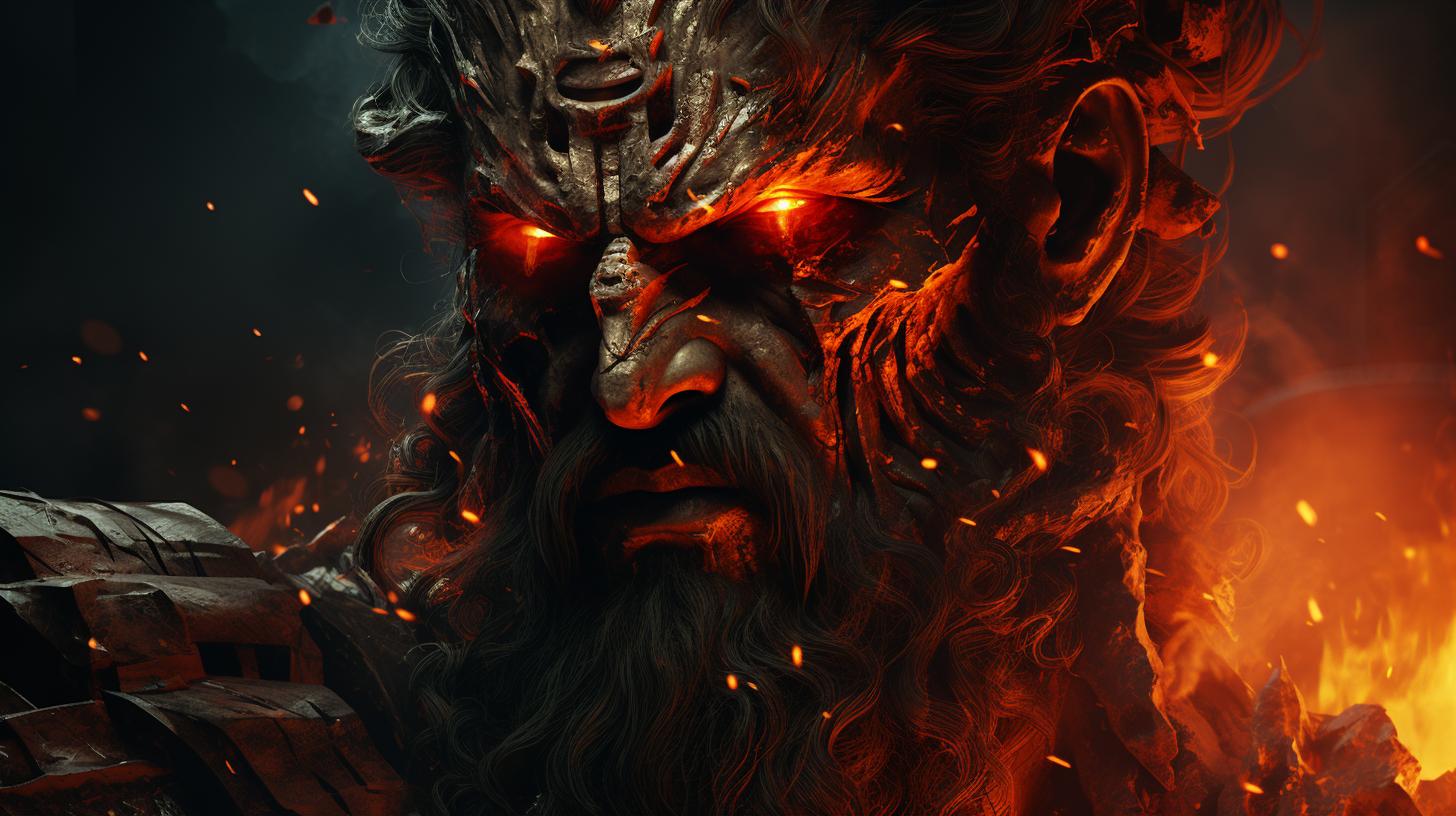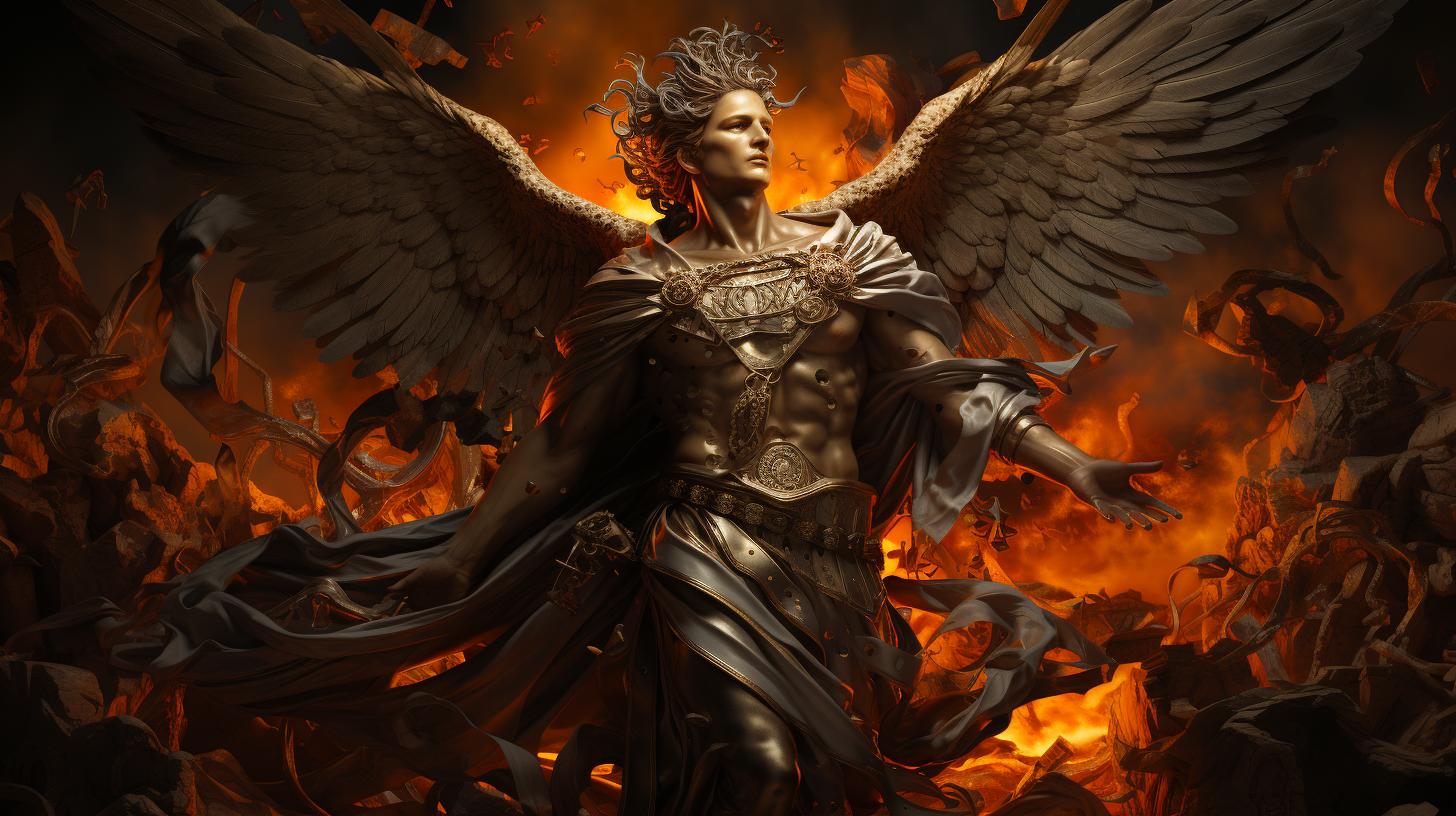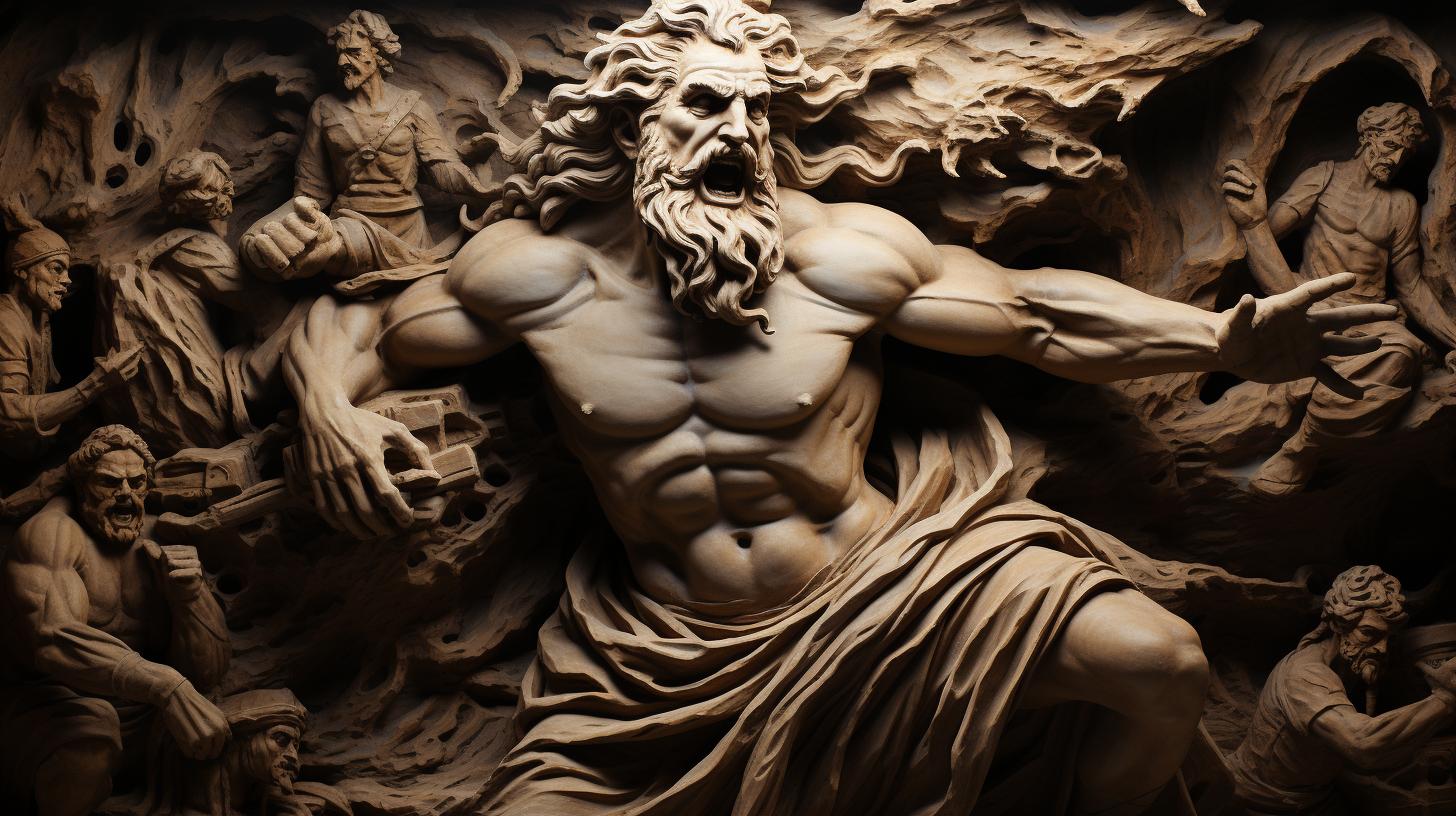What is Athena the Goddess of in Greek Mythology: Exploring her Role in Art, Wisdom, and Warfare
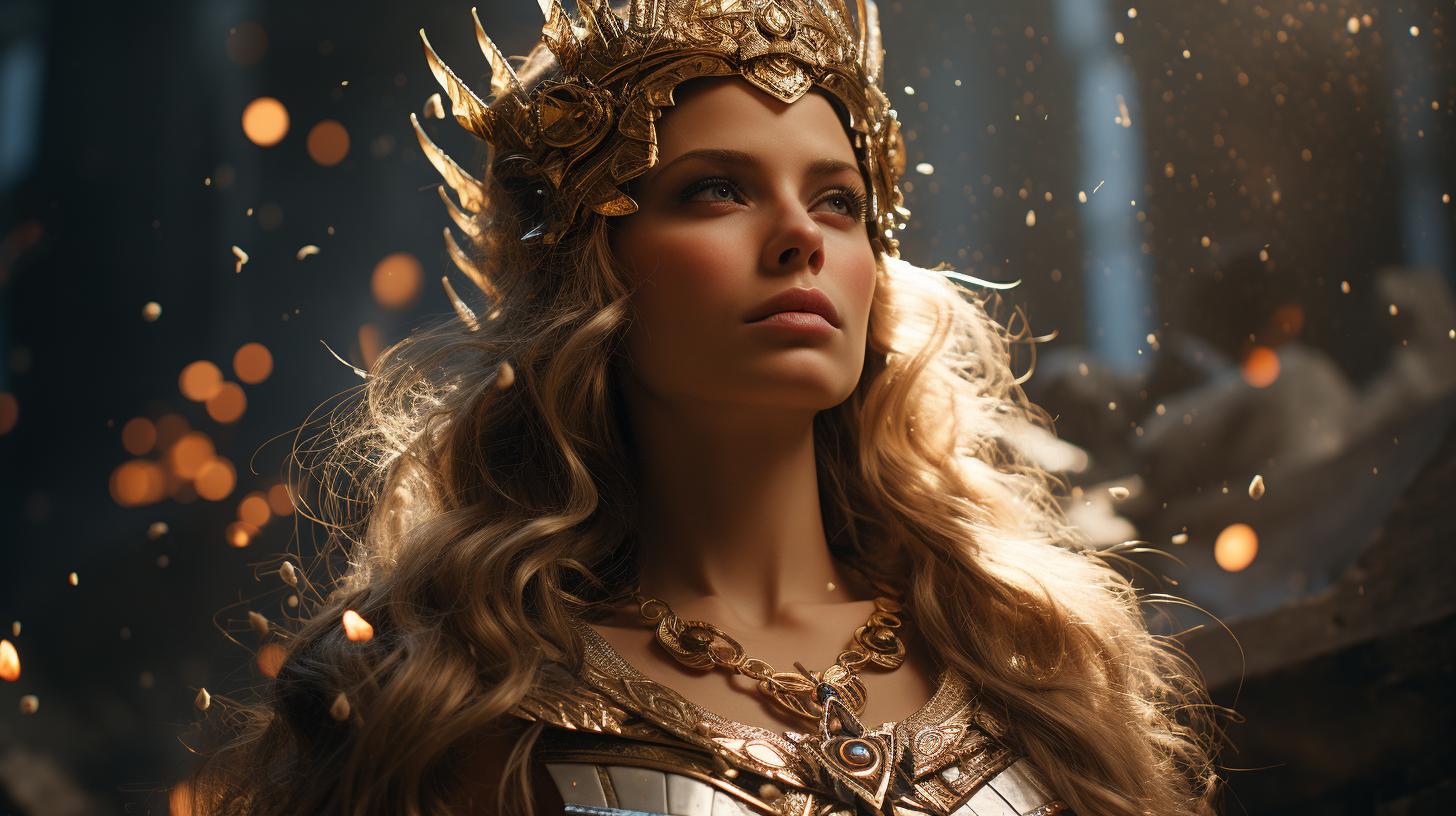
Athena, the renowned deity of Greek mythology, represents wisdom, warfare, and art. She is celebrated for her strategic prowess and association with rationality. Known by various names such as Pallas, Parthenos, and Promachos, Athena finds great reverence, particularly in Athens.
In Roman mythology, she is identified as Minerva, a goddess akin to Athena in wisdom, medicine, commerce, craftsmanship, and war. Athena’s symbolic depictions include full armor, accompanied by olive trees and owls, while her tales involve her birth from Zeus’ head and her involvement in conflicts like the War of the Giants and the Trojan War.
Athena: The Goddess of Wisdom, War, and Art in Greek Mythology
Athena, the revered Greek goddess, holds a prominent place in mythology due to her multifaceted nature. She encompasses wisdom, warfare, and arts, making her a fascinating figure in Greek culture. Let’s delve into the origins, roles, and associations that define Athena in Greek mythology.
Origins and Mythological Background of Athena
Athena’s birth and lineage trace back to Zeus, the mighty king of gods. According to mythology, Athena was not born in the usual manner but emerged fully grown and armored from the head of Zeus. This extraordinary birth served as a testament to her exceptional nature and divine status.
Athena’s Role as the Goddess of Wisdom
Wisdom is one of Athena’s primary domains, and she stands as a paragon of intellectual prowess. She embodies strategic thinking, rationality, and cleverness. Known as the patron goddess of wisdom, Athena guides and inspires mortals in their pursuit of knowledge and understanding.
Attributes and Symbols Associated with Athena’s Wisdom
In Greek mythology, Athena’s wisdom is represented through various symbols and attributes. One of her prominent symbols is the owl, which signifies wisdom and foresight. Additionally, Athena is often depicted holding a spear and wearing a helmet, symbolizing her strategic prowess and ability to devise intelligent battle strategies.
Stories and Myths Highlighting Athena’s Wisdom
Athena’s wisdom becomes evident in several noteworthy myths and tales. One such tale involves her role as a mentor to heroes like Perseus and Hercules, providing them with strategic advice and guidance in their heroic endeavors.
Another famous story is Athena’s involvement in the Trojan War, where she aided the Greek forces with her insightful strategies.
Athena’s Role in Warfare and Battle Strategies
While Athena is associated with wisdom, she also exhibits remarkable prowess in warfare and battle strategies. Often depicted in armor and armed with a spear, Athena personifies the tactical and strategic aspects of warfare.
Her presence on the battlefield inspires soldiers with her courage and fierce determination.
Athena’s Martial Personality and Skills in War
Athena possesses a martial personality, embodying valor and skill in combat. Unlike Ares, the god of unbridled war, Athena represents disciplined warfare and emphasizes intelligent tactics. She exemplifies the idea that triumph in battle requires more than mere brute force.
Athena’s Involvement in Famous Mythological Conflicts and Battles
Athena’s involvement in significant conflicts and battles illustrates her significance in Greek mythology. Her interventions in conflicts such as the War of the Giants and her role in the judgement of Paris during the events leading to the Trojan War highlight her influence and participation in pivotal moments of ancient Greek history.
Athena as the Patroness of Arts and Crafts
Apart from her association with wisdom and warfare, Athena holds a special place as the patroness of arts and crafts. She embodies creativity, craftsmanship, and skillful artistry.
Athena’s Influence in Greek Art and Architecture
Athena’s patronage extends to various forms of art and architecture in ancient Greece.
The Parthenon, an iconic temple dedicated to her in Athens, stands as a testament to her profound influence. Athena’s presence is also evident in sculptures and paintings that depict her striking image.
Athena’s Connection to Crafts and Artisans
Athena’s association with crafts makes her a revered figure among artisans and skilled craftsmen. She guides and empowers individuals pursuing craftsmanship and inspires them to achieve greatness in their respective fields.
Athena’s Relationships with Other Gods and Heroes
Athena, like other gods, has complex relationships with fellow deities and mortal heroes. Her interactions and connections with various figures enrich the tapestry of Greek mythology.
Athena’s Sibling Rivalry with her Brother Ares
One notable relationship in Athena’s mythology is her sibling rivalry with Ares, the god of unbridled war.
While Ares represents the chaotic nature of war, Athena serves as a counterbalance, offering strategic and disciplined aspects to conflict. This rivalry symbolizes the dichotomy between impulsive aggression and strategic warfare.
Athena’s Assistance to Famous Heroes in Greek Mythology
Athena frequently comes to the aid of mortal heroes, supporting them with her wisdom and guidance. Her involvement in the journeys of heroes such as Perseus and Hercules showcases her dedication to championing noble causes and assisting those who embody virtue and valor.
- Perseus: Athena aided Perseus in his quest to slay the monstrous Medusa by providing him with a polished shield as a mirror-like surface to avoid direct eye contact.
- Hercules: Athena lent her wisdom and support to Hercules as he undertook his twelve labors, helping him overcome the challenges through strategic thinking and advice.
Overall, Athena’s relationships serve to illustrate her vast influence and involvement in Greek mythology, enhancing the narratives and adventures of other gods and heroes.
Worship and Reverence of Athena in Ancient Greece
In ancient Greece, Athena was highly revered and worshipped through various cults and temples dedicated to her. She held a significant role in the religious practices of the Athenians, who recognized her as their patron goddess.
Athena’s Cults and Temples in Ancient Greece
Throughout Greece, there were numerous cults and temples exclusively devoted to Athena. The most prominent and notable temple was the Parthenon, located atop the Acropolis in Athens. This magnificent temple was built in honor of Athena and served as a focal point for her worship.
Other significant temples dedicated to Athena included the Temple of Athena Nike, the Erechtheion, and the Temple of Hephaestus. These sacred sites were not only places of worship but also served as centers for cultural and political activities within the city.
Festivals and Celebrations Dedicated to Athena
Athena was honored through various festivals and celebrations throughout the year. The most famous festival dedicated to her was the Panathenaic Festival, held in Athens every four years. This grand event included athletic competitions, processions, and ceremonies that showcased the city’s devotion to Athena.
Another important celebration was the Plynteria, a ritual cleansing of Athena’s statue and temple, held annually. This purification ritual symbolized the renewal of Athena’s power and protection over the city.
Significance of Athena in Athenian Society and Democracy
Athena played a crucial role in Athenian society and democracy.
As the patron goddess of Athens, she was seen as the protector and guardian of the city-state. Her wisdom and strategic thinking were highly valued, making her an integral part of decision-making processes.
Athenians sought Athena’s guidance in political matters, seeking her wisdom and blessing for important decisions. Her statue was often present in the Athenian assembly, symbolizing her influence in the democratic governance of the city.
Athena in Roman Mythology: Minerva
In Roman mythology, Athena is identified with the goddess Minerva. Although they share many similarities, there are also distinct differences between the two deities.
Similarities and Differences Between Athena and Minerva
Athena and Minerva both represent wisdom, but while Athena is associated with strategic warfare, Minerva is also linked to medicine, commerce, crafts, and arts.
They both hold a prominent place in their respective pantheons as revered goddesses.
Both Athena and Minerva are depicted as strong and powerful figures, often shown wearing armor and accompanied by symbols such as owls and olive trees.
They are seen as patrons of knowledge, guiding and inspiring mortals with their wisdom.
However, despite their similarities, there are notable differences in the way they are portrayed and worshipped. Athena’s association with art and crafts is less emphasized compared to Minerva, who is revered as a patroness of artisans and trade.
Roman Worship of Minerva and its Influence on Greek Mythology
In Roman society, Minerva was highly revered and worshipped, particularly by artists, scholars, and those involved in commerce. Temples dedicated to Minerva were built throughout the Roman Empire, and her festivals were celebrated with great enthusiasm.
The Roman worship of Minerva had a significant impact on how Athena was perceived in Greek mythology. As the Roman Empire expanded its influence, the Romans assimilated various aspects of Greek culture, including their mythology.
The identification of Athena with Minerva helped bridge the gap between the two pantheons and facilitated the assimilation of Greek beliefs into Roman society.
Artistic representations of Athena in Roman art often reflected the influence of Minerva, with more emphasis on her association with crafts and trade.
This fusion of the two deities resulted in a blended perception of Athena-Minerva, incorporating elements from both Greek and Roman traditions.
Overall, the relationship between Athena and Minerva showcases the interconnectedness of Greek and Roman mythology and highlights the fluidity of beliefs as they merged and evolved over time.
Modern Interpretations and References to Athena in Literature, Art, and Pop Culture
In modern literature and fictional works, Athena continues to be a source of inspiration and a symbol of wisdom and strength. Many authors have incorporated Athena as a character or invoked her influence in their storytelling.
Her presence often represents intelligence, strategy, and the embodiment of feminine power.
Athena’s Presence in Modern Literature and Fictional Works
Athena appears in various books and novels, captivating readers with her divine attributes. She is commonly seen as a mentor, guiding heroes and imparting wisdom. One notable example is Rick Riordan’s “Percy Jackson” series, where Athena plays a significant role as the mother of the main character and provides essential guidance throughout their adventures.
In addition to books, Athena is often referenced and portrayed in contemporary poetry, serving as a muse for poets who celebrate her intellect and contributions to Greek mythology. Her character is portrayed as strong, independent, and wise, capturing the imagination of readers and continuing to enrich literary works even in modern times.
Athena’s Depictions in Art, Sculpture, and Architecture
Athena’s influence extends beyond literature and into the world of art, sculpture, and architecture. With her prominent role in ancient Greek culture, many artists have depicted her in their works, capturing her graceful yet powerful demeanor.
Throughout history, numerous sculptures and reliefs of Athena have been created, showcasing her in various forms. One iconic representation is the famous statue of Athena Parthenos, housed in the Parthenon in Athens.
This colossal sculpture, created by the renowned sculptor Phidias, portrays Athena in her full armor, holding a spear and a shield adorned with the head of Medusa.
Athena’s architectural influence can also be seen in the design of ancient Greek temples, especially those dedicated to her worship.
These structures often incorporated elements associated with Athena, such as the use of the Doric order, which symbolized strength and order, or the portrayal of the goddess herself in intricate friezes and sculptures.
Athena’s Influence on Modern Pop Culture and Entertainment
Athena’s impact on popular culture is undeniable, as her character continues to inspire and influence various forms of entertainment. In movies, television shows, and video games, references to Athena can be found, highlighting her attributes of wisdom, leadership, and strategic thinking.
For example, in the popular video game series “Assassin’s Creed Odyssey,” players encounter Athena in the mythical ancient Greek setting, where her guidance and presence play a pivotal role in the protagonist’s journey.
Athena’s influence can also be seen in movies and TV shows that draw inspiration from Greek mythology, where she is often portrayed as a wise and powerful deity.
In the realm of music, Athena’s name and symbolism have been referenced in songs and album titles.
Artists have drawn upon her image as a representation of wisdom and strength, using her name metaphorically to illustrate their own artistic prowess and intellect.
Overall, Athena’s presence in literature, art, and popular culture continues to endure, serving as a timeless representation of wisdom, warfare, and artistic inspiration.
Her influence transcends time and continues to captivate audiences, reminding them of the rich mythology and enduring legacy that surrounds this formidable goddess.

